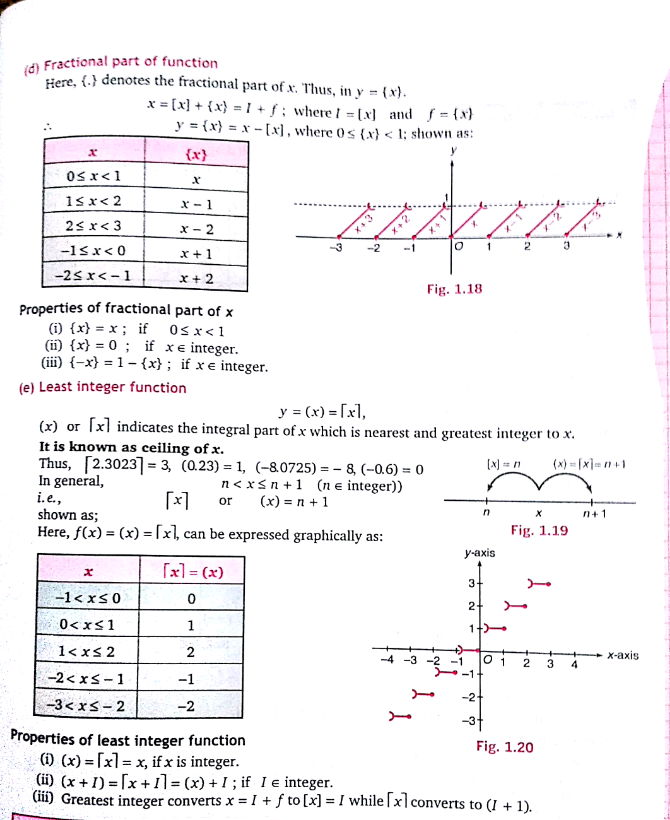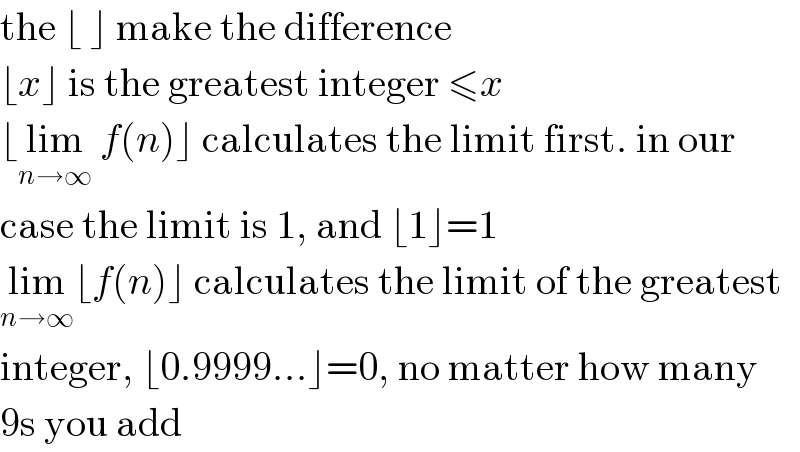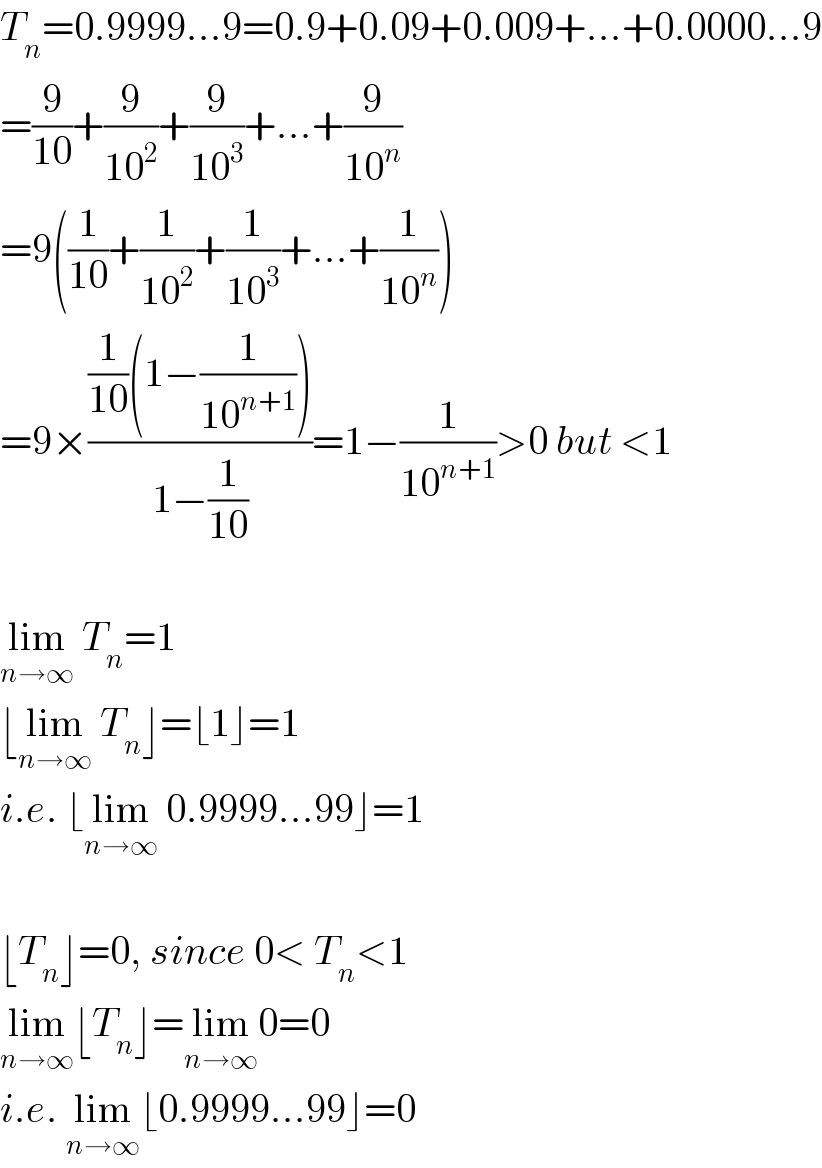
Question and Answers Forum
Question Number 49859 by hassentimol last updated on 11/Dec/18

Commented by hassentimol last updated on 11/Dec/18

Commented by tanmay.chaudhury50@gmail.com last updated on 11/Dec/18

Commented by tanmay.chaudhury50@gmail.com last updated on 11/Dec/18

Commented by maxmathsup by imad last updated on 11/Dec/18
![we have 0,99..=0,9 +0,09 +..=(9/(10)) +(9/(100)) +(9/(1000)) +... =(9/(10))( 1 +(1/(10)) +(1/(100)) +...) =(9/(10))( 1+(1/(10)) +((1/(10)))^2 +...) =(9/(10)) .(1/(1−(1/(10)))) =1 ⇒ lim_(n→+∞) 0,999....9( with n 9)=1 ⇒[lim_(n→+∞) ]=1 but ∀n ∈N 0,999..(n 9) <1 ⇒[0,9999(n 9]=0 ⇒lim_(n→+∞) [....]=0](Q49879.png)
Answered by MJS last updated on 11/Dec/18

Answered by mr W last updated on 11/Dec/18

